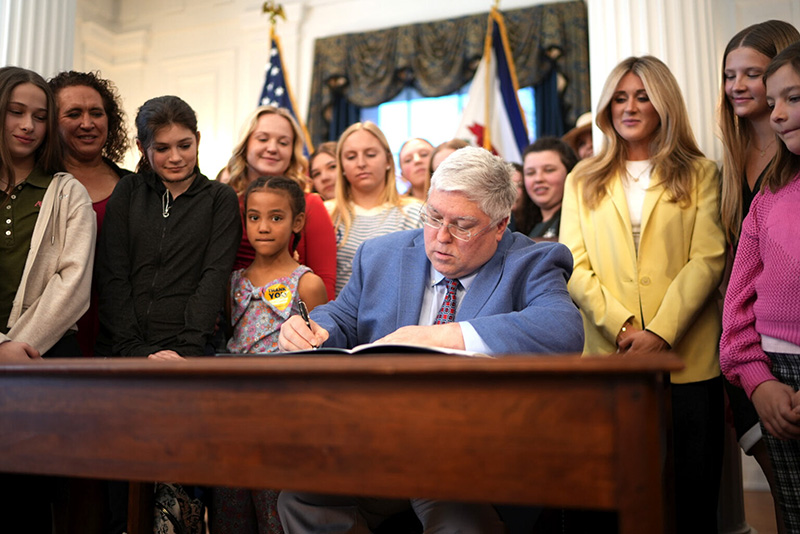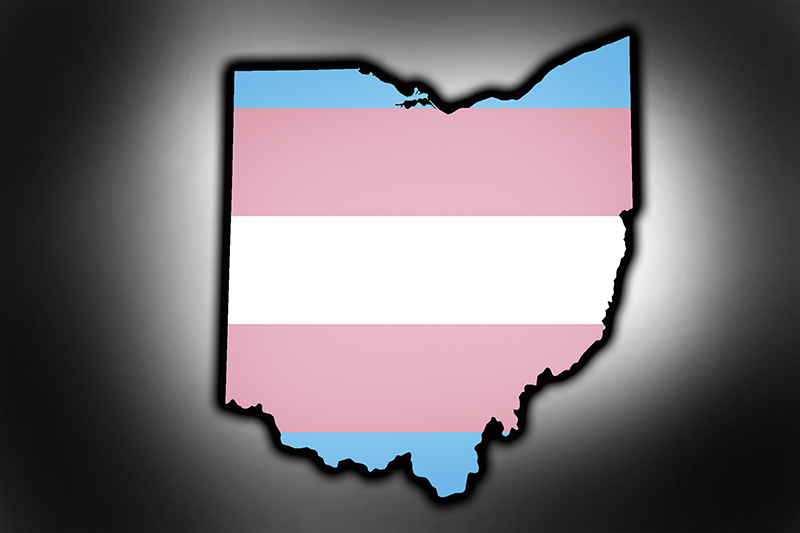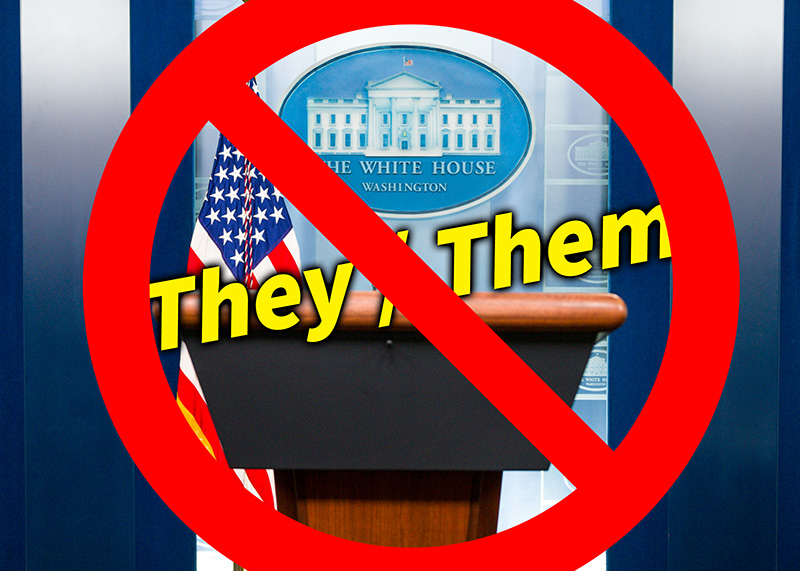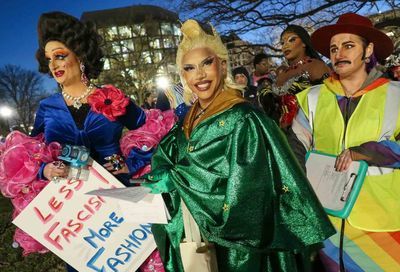Maryland Expands Medicaid Coverage for Gender-Affirming Treatments
Bill provides coverage for medically necessary treatments previously deemed "cosmetic" that are already covered by private insurance.

Maryland lawmakers have passed a bill expanding Medicaid coverage options for transgender state residents.
The Trans Health Equity Act was approved by House lawmakers by a vote of 93-37, and the Senate by a vote of 31-15, putting the measure on track to eventually be signed into law by Gov. Wes Moore (D), who is considered by advocates to be an LGBTQ ally.
Both votes were passed largely along party lines, with two Senate Democrats — Ron Watson (D-Upper Marlboro) and Michael Jackson (D-Brandywine) — and one House Democrat, Sheree Sample-Hughes (D-Salisbury) voting against the bill.
Five other lawmakers from more liberal-leaning jurisdictions — Pamela Queen (D-Olney), Shaneka Henson (D-Annapolis), Mike Rogers (D-Laurel), Nick Charles (D-Forestville) and Karen Toles (D-Suitland) — failed to vote on the bill despite not having an excused absence.
The bill expands the types of treatments covered under Medicaid so that the government-run program for low-income Marylanders covers the same procedures or therapies that would typically be covered by private insurance, whether employer-funded or individually purchased.
Medicaid currently covers some gender-affirming treatments, but does not cover others, such as voice modification therapy, hair restoration surgery, facial reconstruction surgery, and fertility preservation.
Such treatments can carry expensive price tags, with out-of-pocket costs ranging from $800 to as high as $53,000, according to Baltimore-area public radio station WYPR.
There are currently estimated to be around 24,000 transgender individuals in Maryland, nearly one-quarter of whom are enrolled in Medicaid.
In 2022, about 100 people received gender-affirming care through Medicaid. The proposed bill is expected to increase that number by about 25 people per year.
Maryland health officials say that if each of the estimated 125 people were to utilize every single new gender-affirming treatment under the bill — which is not possible, as some of those procedures or treatments contradict each other, it would increase Medicaid spending by $7.6 million, or 0.6% of the $11.7 billion Maryland spent on Medicaid expenditures in 2019.
Opponents of the bill argue that the services that transgender patients can have covered by Medicaid are not provided for other Medicaid recipients.
Additionally, cisgender Medicaid recipients aren’t eligible for coverage for services like dentures, home birth services, or treatment for eating disorders, reports Baltimore FOX affiliate WBFF.
“It seems discriminatory to utilize Medicaid money for cosmetic surgeries and fertility services that aren’t offered to other people on Medicaid,” Del. Kathy Szeliga (R-Perry Hall), argued.
But proponents insist that procedures previously dismissed as “cosmetic” actually play an important role in alleviating and treating gender dysphoria that transgender patients experience.
Del. Kris Fair (D-Frederick), one of several co-sponsors and the chair of the Maryland Legislative LGBTQ Caucus, argued that covering gender-affirming treatments can also help reduce feelings of depression and suicidal ideation that can accompany or be exacerbated by gender dysphoria.
“Individuals who are trans and nonbinary are struggling because society continues to put unnecessary layers of adversity in their place,” Fair said.
“Eventually, hat adversity can become overwhelming for people. And these are simple solutions that we can take out of the way of trans and nonbinary people to allow them to live a more authentic life, and to provide them with a sense of hope and optimism for their experience.”
Support Metro Weekly’s Journalism
These are challenging times for news organizations. And yet it’s crucial we stay active and provide vital resources and information to both our local readers and the world. So won’t you please take a moment and consider supporting Metro Weekly with a membership? For as little as $5 a month, you can help ensure Metro Weekly magazine and MetroWeekly.com remain free, viable resources as we provide the best, most diverse, culturally-resonant LGBTQ coverage in both the D.C. region and around the world. Memberships come with exclusive perks and discounts, your own personal digital delivery of each week’s magazine (and an archive), access to our Member's Lounge when it launches this fall, and exclusive members-only items like Metro Weekly Membership Mugs and Tote Bags! Check out all our membership levels here and please join us today!























You must be logged in to post a comment.